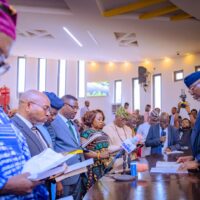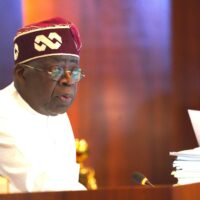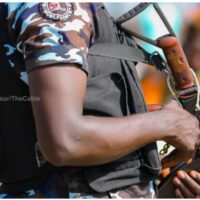Editorial
Nigeria has endured yet another blood-soaked 24 hours, underscoring the country’s uncontrolled descent into insecurity and the growing sense of national vulnerability.
Fresh attacks across multiple states , including the reported execution of a senior military officer in Borno and the abduction of dozens of schoolgirls in Kebbi, have reinforced a grim truth: Nigeria is bleeding, and the wounds are deepening.
From farmlands to highways, worship centers to boarding schools, violence has become a daily reality. Communities are attacked without warning, travellers are ambushed in broad daylight, and entire villages live in fear of nightfall.
Even members of the armed forces, once considered untouchable, have become targets in a conflict that appears to be slipping beyond government control.
This escalating wave of insecurity places the responsibility directly at the doorstep of President Bola Ahmed Tinubu.
His patriotism, political courage, and commitment to national unity are now under intense scrutiny. Nigerians are asking a simple but painful question: How long can the nation endure this level of violence in the name of unity?
Despite years of heavy spending on security and promises of reform, the crisis persists. Committees are inaugurated, strategies are reviewed, statements are issued , yet the killings continue. Unity has become a patriotic mantra amongst the elite, but for ordinary citizens, it increasingly feels like a burden paid for in blood and tears.
What should worry Nigerians even more is the failure of the late former President Muhammadu Buhari to effectively address the country’s escalating insecurity, despite his celebrated military background and status as a prominent northern-born leader.
At this critical juncture, the President faces three unavoidable choices:
1. Wage a Decisive War on Insecurity
A sweeping, uncompromising offensive is needed — one free from political interference or sectional sensitivities. Terror networks, bandit groups and their sponsors must be dismantled with renewed force, intelligence and accountability.
2. Allow a National Referendum
If the present structure cannot protect its citizens, Nigerians deserve the democratic right to determine their future. A referendum on restructuring or regional autonomy may offer clarity where rhetoric has failed.
3. Consider a Peaceful, Negotiated Reconfiguration
If unity continues to come at the cost of mass casualties, then a deliberate and lawful restructuring , or in the extreme, peaceful dissolution , may become the last option for national survival.
This is not a call for chaos, but a call for courage.
A call for honest leadership.
A call for decisive action in the face of a national emergency.
Nigerians have every reason to be deeply worried about the escalating insecurity across the country. Despite repeated promises and military interventions, attacks by bandits, kidnappers, and insurgents continue unabated, leaving countless lives lost and communities displaced.
The situation has attracted international attention, with former U.S. President Donald Trump labeling Nigeria as a “country of concern” due to the government’s failure to protect its citizens from widespread violence.
This designation underscores not only the domestic crisis but also Nigeria’s growing vulnerability on the global stage, raising urgent questions about leadership and national security.
Nigeria stands at a crossroads. What President Tinubu chooses in the months ahead will define not only his legacy but the future of a country struggling to hold itself together.
Unity is desirable.
But survival is non-negotiable.
For millions of Nigerians, the choice is no longer philosophical , it is life and death.














